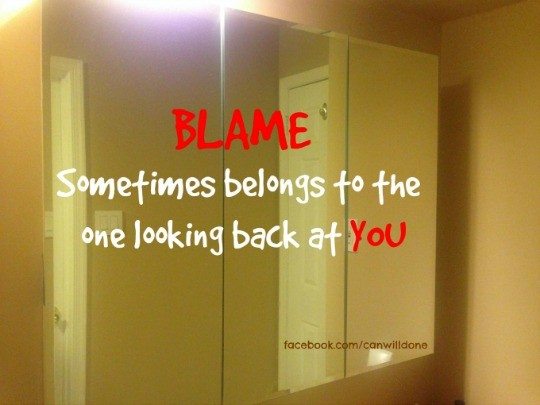Who are You Prone to Blame in Unfavorable Situations?
Think of a moment in your life where someone did something not so favorable or encouraging. How did you react? How did the incident make you feel about yourself or the someone or something? Where did you place blame?
Here I share with you something that happened to me several years ago – 1988. The situation had a profound effect on me for many years. Give what I am about to share with you consideration as you think about your own moment and how you reacted.
Scene of the Placed Blame Crime
We were at the RAC (Rutgers Athletic Center) on Livingston Campus for basketball practice. I stood to the right near the top of the key in the triple threat stance. For those who may not know much about basketball, the triple threat stance sets you up to dribble, shoot, or pass. Sue Wicks, a college All-American who years later became a star player for the New York Liberty, in all of her six feet-fourness (much taller than me) was guarding me.
I squared up to shoot. As I went into the shooting motion, off to my right, the tall broad shouldered coach, Theresa Grentz, bellowed, “No need to guard her Wicker; she’s not going to shoot!” “Thanks for ringing endorsement of encouragement, Coach”, I thought to myself. In that moment I felt torn. I still had my dribble. I could dribble around Sue, then shoot. I could dribble and pass the ball, or I could shoot. I made my decision.
Falsely Placed Blame
With Sue's hand stretched high, I bent my knees, placed my arm at a 90 degree angle, propelled my way upwards, released the ball off my finger tips, and watched with everyone else as the ball hit off the side of the rim. It may have been my imagination, but as far as I was concerned, Coach had a smirk on her face that said, “Ha! I knew she couldn’t do it.”
There I was, the walk-on, not the little girl who had dreamed of going to college on a full scholarship for a Division I basketball program, demoralized. After my one and only season on the team, I had lost both my desire to play a sport I had once loved, as well as my confidence. For years too, I could not stand Theresa Grentz. I blamed her for my not wanting to play basketball ever again and for squashing my confidence, the little I still had.
Where Blame Truly Lies
What did I gain from my reaction? Considering your own story, what would you gain from such a reaction?
Deep down inside, I hope you would have reacted much better than I did. But in case your reaction would have mirrored mine, please take heed to the lesson that I learned. The other person that I felt had done me wrong was not the problem. I was.
My reaction was mine and mine alone. I was the one who chose to stop playing basketball. I was the one who allowed that incident to shatter my confidence rather than work on improving my game. I, in no way, benefited from my reaction. I surely did not grow from it. Knowing that, the only person I can logically blame for how I reacted to that incident is me.
Blame: What Do You Gain from It?
Here is what I believe to be true. Yes, there are some things that happen to you in life that are much harder to get over than others, but your ultimate reaction is your choice. Given your own situation, I encourage you to be kind to yourself. Choose the reaction that will make you better and mentally stronger. I know for sure that is what I will always strive to do.
The question this post asks is: what do you gain from blame? The greatest lesson that I learned in regards to blame is to not place blame, but rather to make the choice to become better from my circumstance.
Start the discussion: When faced with someone or something that attacked your confidence or mental well being, how did you manage it to work for your good? Share in the post comments, on Facebook or on Twitter.
